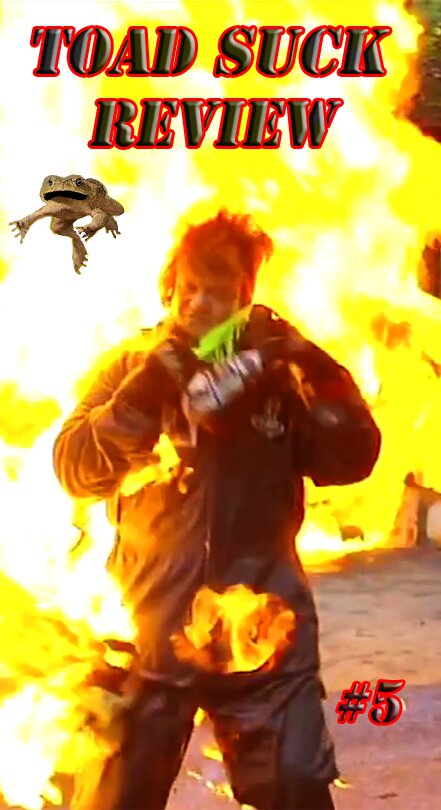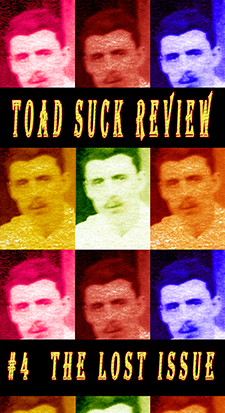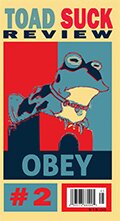In the living room he could hear the T.V. going and see his parents’ silhouettes on the couch in the screen-glow. Martin crept around them and into the kitchen. He had his black jeans on, black shirt, pocketknife, and fingerless gloves that had been his father’s. At the sliding back door he paused to adjust the gloves and savored the feeling of confidence that they gave him. Martin slipped out into the night. His parents didn’t hear the click of the latch or the purr of the sliding door. They never did. The night welcomed him. He moved into the yard and into the almond orchards beyond. The trees had just flowered. The air was full of their sweetness and the smell of rain. The California hills were rich with springtime, green, soft, untouched by the brown-crisp desiccation of summer that would come.
It was Martin’s eleventh foray into the orchards. It was the eve of his tenth birthday. Adolescence loomed, an ugly and mysterious thing. He pushed it out of his mind. The orchard at night was too awesome to ignore. Crickets sang. Stars winked through the trees. There was an excellent stick and he picked it up. He waved it around and struck things, bark chipped and flew, tall plants were laid to waste. Martin fenced with the shadows and starlight. Everything was great. There is so much you can do with the right stick.
On his last excursion, when the frost still came at night, he had found a nearly perfect place for thinking, a hill at the intersection of four orchards with one lone tree, long dead, weathered and twisted, always silver at night. There was a boulder on top for sitting and you could see above the almond trees all the way out to the winking lights of towns scattered out in the flats and hills. Martin went there with his stick in hand.
The grass scratched at his legs as he climbed. The crickets were quiet. The night became very still. He had brought a little bag of crackers and peanut butter saved from his lunch and he ate them on top of the boulder on the hill. The other day, he heard his older brother talking to his friends. “I am a man now,” he said, looking around at his friends, speaking in a hushed, serious tone. “Erin Moss gave me a hand-job at play rehearsal. It was awesome.” The other boys murmured their approval, congratulated him. Martin was aware of hand jobs. Martin was aware of sex. He had heard that in rare circumstances you can become pregnant in the ear and die, if you play with yourself it might break, sex is the best thing in the world, sex is dangerous, beware. Girls were nice, but still mostly playmates, though Martin sometimes liked the way they smelled. He liked it when they hit him sometimes and called him names.
A toad emerged from beneath the boulder and hopped into the open. Martin slipped off the boulder and followed it. He got close and shined it with his light. The toad was revealed! Impassive, stolid, rotund, it was a massive toad. Martin got down on his belly. They were eye-to-eye, as close as a boy and a toad can be. The toad did not flinch. Martin looked deep into the yellow eyes of the toad. He felt a queer electric current between them. The toad hopped off, down the hill, into the almond trees, off to do its toady business. Martin let it go. There was a profound quiet inside him. The moon began to rise and he watched its progress for a little while. It was saturated and pregnant with red, huge over the central valley flats like some godly, ripe fruit dangling there. It was a strange, strange moon, Martin thought.
Martin gathered his stick. He hopped off down the hill, back along the path to explore the orchard his parents owned. The rows of trees were lit up by the moonlight. He loved the neat order of the rows. He loved looking down the open green lanes between the trees. Martin walked among the almond trees, stick ready, taking in the sweet scent of the pink and white blossoms. The stars sparkled. The strange red moon climbed high into the sky. The whisper of an owl’s wings tickled his ear. He turned around and saw a great bird descending from the sky, its body cutting across the moon. It came down over his head between the trees and landed on a branch ahead of him that stuck out into the open lane, breaking the continuity of the orchard rows. He saw the bird perched there, rocking slightly and looking at him. He edged closer to it. A barn owl, he thought, it had the shape. The bird screeched at him, a horrible, unearthly sound that made his stomach turn. Martin tried to stay perfectly still.
A sweet and haunting melody sprang forth from the bird. It sang in a low tone, and as it sang the almond trees shimmered and the whole world became unreal. A pale, gold light emanated from within the creature so that it was just a shade brighter than the silver light of the blood red moon. It had the body and coloring of a barn owl but its face was a woman’s face. She had rich brown skin like wet clay and huge eyes the color of crystal and cobalt. The creature sang its primal, honeyed tones and Martin went to it, unable to stop his legs. The melody drew him forward until they were eye to eye. The owl-woman sneered and screeched into his face. Martin fell back onto the ground, scrambled to his feet, face hot with embarrassment, heart pounding. The owl-woman laughed at him, a harsh laugh. Martin watched her watching him. What a strange thing, this owl-woman. Her beauty held him in thrall, her cosmic eyes, her shining clay skin, the whisper soft speckled wings, ivory fangs, black talons meant for crushing skulls. She sang a few notes and fixed him with her cobalt-crystal eyes. “I am, Nalactnajtiladt,” she said.
Martin could feel her weighing him. He could feel her in his skull like a thought about to blossom in language but not his own, cold and foreign. Martin pushed her out with a fierce effort of his will. “That’s mine!” he said, “You’re not allowed to be in there.”
Nalactnajtiladt hissed and laughed, “Good, very good, boy.” She licked her lips. Her fangs glistened. “You will be ten years old tomorrow. You think you will be a man soon?” She burned him with her eyes.
Martin shuffled his feet, looked away and spat onto the ground.
“I am five thousand years old, but I remember ten.” She paused, considering him. “Let me see your stick.”
Martin planted his feet and held out the stick. Nalactnajtiladt fluttered down and perched on it. She was light as dust. She clutched the stick with her talons, tested it, bit it with her teeth. Frenzy overcame her and she beat her wings violently, ripping at the stick with tooth and talon. “Excellent!” she hissed, and then flew back to her incongruous branch.
Martin eyed her, kept the stick planted between them like a quarterstaff and felt the weight of the blade in his pocket. He would not be fooled. Martin pushed up his glasses, wiped his brow, put his shoulders back and adjusted his gloves.
Nalactnajtiladt began to sing. She stretched her wings out and beat them in the air. An entire cosmos of melody poured out of her. The layering of voice was infinite, angelic and soaring, low and beastly, thousands of sounds united as one thunderous cascade of melody. Then, like a flame snuffed out, silence. She wrapped herself in her wings and shut her eyes. She rocked on the branch, murmuring softly in an indistinguishable tongue. Nalactnajtiladt went completely still. The blood red moon reached its apex in the sky. Martin dared not creep away. He put on his ferocity and adjusted his grip on the stick. Martin’s heart roared. He kept thinking, “She’s going to hear my heart, it’s going to give me up.” He breathed deeply and counted to ten, like his mother showed him.
Nalactnajtiladt stirred. She fixed him with her gaze and chuffed out the same note three times. It was as if the whole world was being drawn into her eyes.
“Do not be afraid of softness, boy. Do not be afraid of your open heart.”
“I’m not afraid.”
“There is no strength in brittle iron. When life twists you, you must bend.”
“I’m not afraid,” Martin said, stepping closer to the owl-woman.
Nalactnajtiladt smiled, and she would have looked kind if not for her fangs. “Don’t be foolish,” she whispered.
A soft wind cut through the space between them, stirring the almond trees whose blossoms rustled, throwing sweetness into the air. The moon made its descent. Martin saw that silver had crept across its face, the red all drained away. He scowled at the owl-woman. “I’m not afraid. I’m not afraid of you. What do you want from me?” he spat the words at her and slashed the air with his stick.
Nalactnajtiladt bared her fangs and hissed, “Rude boy! Stupid boy! I come bearing gifts. If I wanted your blood I would have it. I would eat your heart if it pleased me.” She shook her head and a sad half smile formed on her lips. She sighed, “I am a predator. You are right to be afraid, but I won’t harm you now. I will wait and see what sort of man you become. Come closer. Come here so I can give you your gift and be on my way.”
Martin moved to her, knowing that if he refused or fled she would tear him open with her black talons, would have his guts, his heart, the marrow in his bones, so he went forward to receive her gift. Nalactnajtiladt fluttered down and alighted on his shoulder. He could feel the points of her talons prick him. She leaned in and pressed her lips to his ear. “I am going to teach you your true song. It is yours and yours alone. Keep it close to you. Do not diminish its power.” She sang so only he could hear. She poured the melody into him, an odd-metered, moody song peppered with notes of brilliant joy. Nalactnajtiladt gave Martin his song. She seared it indelibly into him. It rang through him again and again until it was as common and remarkable as the beating of his own heart. An eternity passed. No time passed. When Nalactnajtiladt released him she looked into Martin’s eyes and studied him. He felt lost in the vastness of her eyes. He could fall into them, it seemed, and not return.
“Goodnight, Martin,” she said, “Be wise.” Nalactnajtiladt took off and flew into the sky. As she left him, the tip of her wing brushed his cheek and burned him there, leaving an indelible blue line that was only visible in certain qualities of light.
Martin lay on his back in the orchard and looked up at the stars, at the almond trees and the steady, earnest moon. He felt the melody and the strange rhythm of his gift mingle with the flow of his blood, reverberating in every cell. He recalled the owl-woman’s eyes, and her words returned to him.
“Don’t be afraid of softness, boy. Don’t be afraid of your open heart. There is no strength in brittle iron. When life twists you must bend.”
Martin sang his song. He sang it so that only he could hear, dancing with himself and everything.
 '
'
 '
'
 '
'
 '
'